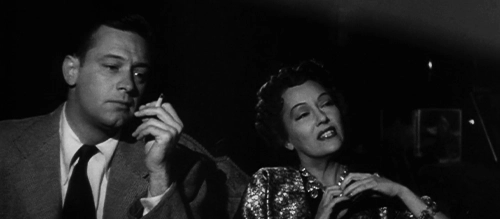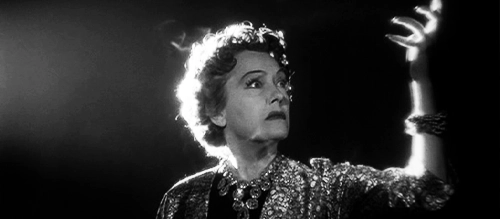Sunset Boulevard (1950) Review

Sunset Boulevard (1950)
Director: Billy Wilder
Screenwriters: Charles Brackett, Billy Wilder, D. M. Marshman Jr
Starring: William Holden, Gloria Swanson, Erich von Stroheim, Nancy Olson
Sunset Boulevard was made more than 70 years ago and is one of the most iconic films of the Golden Era of Hollywood cinema. The film, directed by legendary director Billy Wilder, was selected for preservation in the National Film Registry in 1989, owing to its significance and cultural importance, and Paramount Studios decided to digitally restore the film in 2002 (and again in 2012), fronting an expensive project to ensure its preservation given the poor conditions of the original negative prints. A three-time Oscar winner and a five-time nominee, it was a successful film both critically and at the box office in 1950, and remains a highly regarded film to this day. It is often considered to be one of the greatest American films ever made.
Sunset Boulevard starts in a mansion on the titular Sunset Boulevard, the street that is by far most associated with Hollywood film production. The story follows Joe Gillis (William Holden), a struggling screenwriter, as he meets Norma Desmond (Gloria Swanson), a forgotten film star who was popular in the silent era. Upon learning that Joe is a writer, Norma decides to hire him. The two start working together on a script Norma has written and intends to star in, ‘Salome’, which she only wants to discuss with her former director Cecil B. DeMille, who appears as himself in this film.
Sunset Boulevard is particularly notable because of its characters, which by the end of the film almost feel like real people. The memorable performances, particularly from William Holden and Gloria Swanson, only enhance an already near-perfect script and make the film the classic that it is.
The black-and-white dark aesthetic, curated by cinematographer John F. Seitz, is also one of the film’s most significant elements. The opening sequence is not only one of the most beautiful and unforgettable of the golden age of Hollywood, but also a fantastic achievement in terms of logistics and technology. Placing a camera underwater to create the desired effect of this scene would be tricky even now, but it was even more difficult at the time. The visuals of the film perfectly emblemise the aesthetic of American film noir, by nature associated with low-key black-and-white style cinematography, which is also reflected in its tropes, its story, and its characters.

Sunset Boulevard is a somewhat bleak reflection of the American film industry and yet it is still able to maintain its humour throughout, keeping any viewer hooked from the very beginning of the film until its final frame. Much like Singin’ in the Rain by Stanley Donen and Gene Kelly, Sunset Boulevard reflects on one of the most pivotal moments in the film industry: the integration of sound. The movie is quite self-reflective with the analysis of the numerous challenges this revolution in filmmaking brought about. The introduction of sound in film is something that audiences nowadays would most likely know from history books, but Sunset Boulevard truly puts it into perspective, illustrating the reality of this massive change.
Films that reflect on filmmaking, or the movie industry in general, have always been a popular chice for big-name directors – most recently Steven Spielberg’s The Fabelmans and Damien Chazelle’s Babylon – but Sunset Boulevard remains the blueprint. Perhaps this is because the movie is so unique in its assessment of the industry due to its social commentary, which remains unparalleled today. Its critique of the very system behind Hollywood can only be compared to films like Sullivan’s Travels, which itself managed to call out the movie industry from the inside while also imbuing its presentation with the perfect amount of dark comedy.
This film is also still incredibly relevant to today’s industry. Joe’s struggles as a screenwriter particularly speak to today’s post-2023 WGA strike world, which goes to show that the concerns portrayed in Sunset Boulevard are as relevant now as they were a lifetime ago.
Sunset Boulevard is one of those films that happens only once every so often, finding the perfect balance between humour, aesthetic, and social commentary. It is elevated by brilliant performances and notable cameos, as well as its meaningful narrative and film noir aesthetic. Billy Wilder’s feature is also an incredibly layered film that can be discovered and re-discovered with every rewatch. It is a moving picture of its time, about the history of cinema, that remains able to speak to those of us watching today in an entirely new century.
Score: 24/24
Written by Clotilde Chinnici
You can support Clotilde Chinnici in the following places:
Portfolio: Clotilde Chinnici
Twitter: @filmswithcloe

